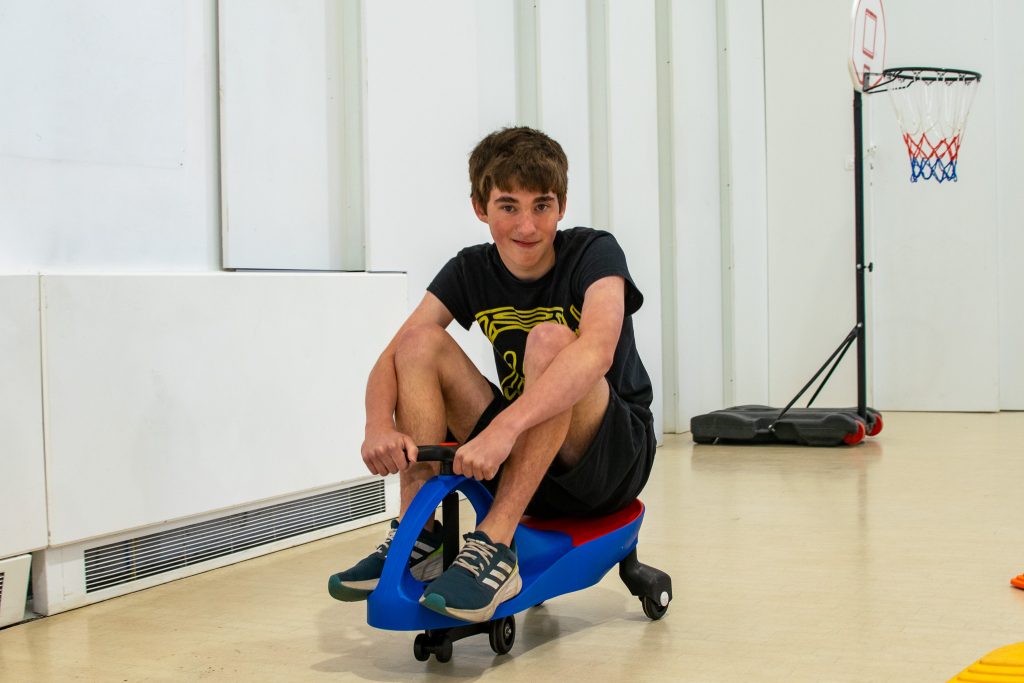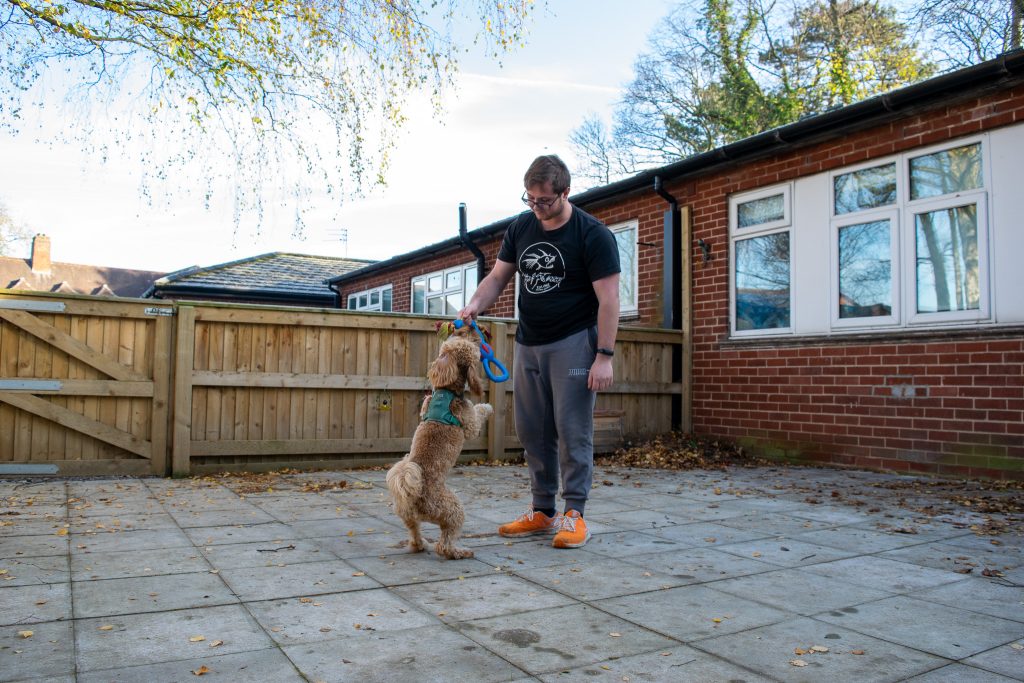Therapy Support
Our experienced multi-disciplinary team provides tailored therapy support in school to help students access all facets of the curriculum.
The team works collaboratively with education staff and the students to ensure that individual sensory, communication and regulatory needs are met so that every student gets the support they need to thrive.

The Therapy we Offer
Speech and Language Therapy (SaLT)
The Speech and Language Therapy Team supports functional communication for our students.
We promote a total communication approach which values all forms of communication. An important part of each and every young person’s development is the growth of the ability to communicate with others, both verbally and non-verbally. Communication underpins many aspects of learning and in a school setting provides access to the curriculum.
The Speech and Language Therapy (SaLT) Team has a critical role to play in the implementation of programmes designed to develop each pupil’s communication skills.
Each class has an assigned speech and language therapist. All our Speech and Language Therapists are members of the Royal College of Speech and Language Therapists (RCSLT) and are registered with the Health and Care Professions Council (HCPC).
Occupational Therapy
The Occupational Therapy Team supports students to develop functional life skills and understanding their sensory needs in order for them to make sense of the world. This is done through the sensory systems – the foundation skills to learning and emotional regulation.
Occupational therapy support is embedded into the school curriculum.
Each class has an assigned occupational therapist. All our Occupational Therapists are members of the Royal College of Occupational Therapists (RCOT) and are registered with the Health and Care Professions Council (HCPC).
School Counselling
Our school counsellors are on hand to support young people with emotional or psychological needs. We take a flexible approach, with timetabled sessions as well as reactive support. So we’re there whenever students need us most.
Please click here if you wish to make a referral for counselling support
Positive Behaviour Support
Our approach is positive and proactive. All behaviour is a form of communication. We take time to understand the function of the behaviour and how we can better meet someone’s needs. We also help students learn individual coping strategies to handle all kinds of situations.
Play Therapy
Play is a powerful therapeutic tool for children and young people. Our play therapists use a variety of approaches, including intensive interaction, floor therapy, creative workshops, lunchtime groups and daily drop-in sessions.
Download our Counselling and Play Therapy brochures
Animal Assisted Intervention (AAI)

School can be stressful and overwhelming. Spending time with our support animals helps students with their emotional regulation, and even motivates some students to come into school.
Through a referral process, where applicable, we are also able to offer access to The Donkey Sanctuary.
What Is Animal Assisted Intervention?
Animal Assisted Intervention can improve young people’s mental, physical, social and emotional functioning. Depending on the needs of the child it many include different animals used in the session, including horses (also called equine-assisted therapy), dogs (also called canine-assisted therapy), guinea pigs, rabbits and reptiles to name but a few.
It is more than simply spending time with an animal, animal-assisted intervention involves specific therapeutic goals, strategies and outcomes measures. Therapeutic experiences can include walking, brushing, petting and caring for an animal, as well as processing the experience of trying to achieve a given task.
Explore More From Inscape House

Careers Education
We provide our students, parents and guardians with access to careers information in preparation for future transitions as well as meaningful work placements.

